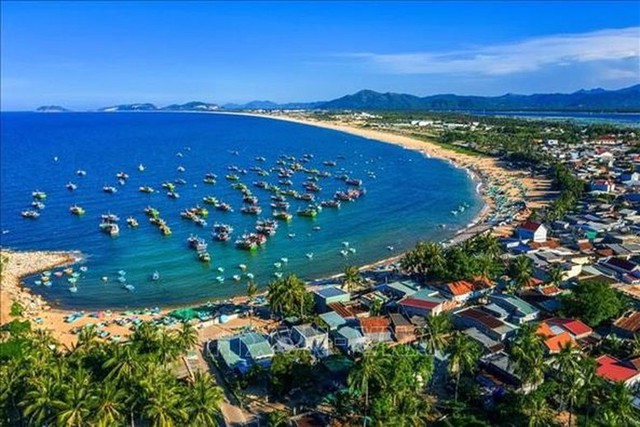Gov't approves plan to implement National Marine Spatial Planning
VGP - The Government has approved a plan to implement National Marine Spatial Planning in the period 2021-2030, with a vision towards 2050.

Under the plan, the Government targets to develop and deploy a set of policy criteria to turn Viet Nam into a strong maritime country.
The Government plans to focus on developing infrustructure in favor of marine economic sectors; research and develop new marine economic sectors in a green, low-carbon and circular direction; and promote the development of science, technology, human resource and international cooperation in this area.
The National Marine Spatial Planning, approved by the National Assembly in June last year, encompasses viewpoints, visions, major tasks and breakthrough areas for the development of marine economic sectors as well as a list of key projects arranged in the order of priority through 2030, with a vision to 2050.
This is a comprehensive, inclusive, inter-sectoral, dynamic and open framework that concretizes the guidelines of the Party and laws of the State on management, exploitation and use of marine space in order to turn Viet Nam into a strong coastal nation in line with the Resolution of the 13th National Party Congress, the 10-year Socio-economic Development Strategy for 2021-2030, the Resolution No. 36-NQ/TW dated October 22, 2018 adopted at the 8th Plenum of the 12th Party Central Committee on Viet Nam's Sustainable Marine Economy Development Strategy through 2030, with a vision to 2045.
The overall goals of the National Marine Spatial Planning are to lay the foundation for rapid and sustainable development of the marine economy, contribute to formulation of strong marine economic sectors, create various livelihoods for people; ensure national security and defense, promote international cooperation, firmly maintain independence, sovereignty, sovereign rights, jurisdiction and national interests; effectively manage and exploit marine resources, protect the marine environment, marine biodiversity and the values of marine culture, in order to gradually turn Viet Nam into a strong marine country.
The National Marine Spatial Planning also points out four breakthrough areas as follows:
Firstly, focusing on developing a system of infrastructure and logistics associated with ship-building industry and maritime transport in order to promote sustainable development of marine economic sectors, ensure national security and defense, and international cooperation, and enhance capability to respond to natural disasters, climate change and sea level rise.
Secondly, developing marine and island tourism in a sustainable and responsible manner in association with green and smart urban development at islands.
Thirdly, accelerating the development of green, circular, low-carbon and resillient aquaculture economy, with priority placed on on offshore aquaculture and fishing in association with marine conservation and marine culture protection.
Fourthly, developing clean and renewable energies at sea, with priority placed on offshore wind power to ensure national energy security, national defense and security, conducting comprehensive research and evaluation of the potential of oil and gas, solid minerals and construction materials on the seabed.
